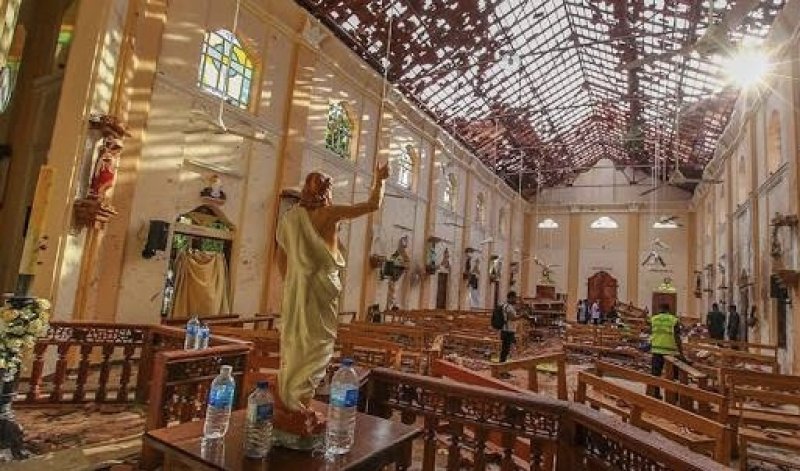
(The Telegraph) - A suspected man questioned over bombings that killed 269 people in Sri Lanka is seeking asylum in the UK.
The unnamed asylum seeker, from Sri Lanka, was arrested over allegations that he was involved in the 2019 Easter bombings in the country.
The blasts killed six Britons, including a mother and her two children.
The man, who has been granted anonymity, left Sri Lanka in 2022 after being arrested and released on bail over the attacks, in which suicide bombers targeted luxury hotels and churches.
He arrived in the UK in September 2022 and claimed asylum a month later. He told an immigration tribunal that, since leaving Sri Lanka, police officers had attended his family home and that he “fears persecution” if he returns home. It is understood he denies the allegations.
His asylum claim for his wife and himself was initially rejected by the Home Office, but he won an appeal against the decision at an upper immigration tribunal and his case will now be reheard.
Last week, Shabana Mahmood, the Home Secretary, announced major reforms to the asylum system, making refugee status temporary and giving ministers powers to return migrants to their home country once it was deemed safe.
Ms Mahmood is also overhauling immigration appeals by replacing judges with adjudicators and limiting illegal migrants and foreign offenders’ ability to exploit human rights laws to fight deportation.
Some 38 foreign tourists were killed in the Easter Sunday bombings in 2019. Among them were Britons Anita Nicholson, 42, and her children, Alexander, 14 and Annabel, 11, who died in an explosion at the Shangri-la Hotel in Colombo.
Lorraine Campbell, an IT director, retired firefighter Bill Harrop and his wife Dr Sally Bradley also died in a blast at the Cinnamon Grand Hotel.
It is believed that the eight suicide bombers were associated with an Islamist militant group named National Thowheeth Jama’ath.
An upper tribunal judgment said: “[The Sri Lankan] had applied for protection on his own behalf and on behalf of his wife. He says that on Jan 5 2022 he was arrested and questioned in connection with the Easter bombings, which took place in Sri Lanka on April 21 2019.
“He says that he was released only on the payment of a substantial bribe and was subject to reporting conditions. He left Sri Lanka for the United Kingdom on Sept 2 2022 and an arrest warrant was issued thereafter on Sept 15 2022.
“He says that the police have attended his family home in Sri Lanka, and he fears persecution if returned to Sri Lanka.”
The upper tribunal heard that his original case had been dismissed by the first-tier tribunal.
The Sri Lankan argued that the first-tier tribunal made mistakes. He said the judge was “biased” and that the “arrest warrant was not issued until after he left Sri Lanka, which the judge failed to appreciate”.
Claire Burns, the deputy upper tribunal judge, found that the previous hearing had made a series of errors, including it being missed that the man had been released on bail following an arrest warrant. Judge Burns denied that any previous judges were “highly prejudiced” in their approach.
The facts of the case will be reheard at the first-tier tribunal at a later date.
Judge Burns concluded: “I find there will need to be a complete rehearing wherein the judge will make findings about the credibility of [his] account and given the nature and extent of the fact finding, the appeal should therefore be remitted to the first-tier tribunal.
“The judge erred in law in his analysis of the documentary evidence as set out above, and so for that reason the decision must be set aside.”
A Home Office spokesman said: “The Government rejected this asylum claim to ensure this suspected terrorist never sets foot on British soil. We stand to robustly defend this decision through the courts.
“Last week, the Home Secretary announced the most sweeping reforms to tackle illegal migration in modern times which will make Britain a less attractive destination for illegal migrants and will make it easier to remove and deport them. As part of this, we are reforming human rights laws and replacing the broken appeals system.”